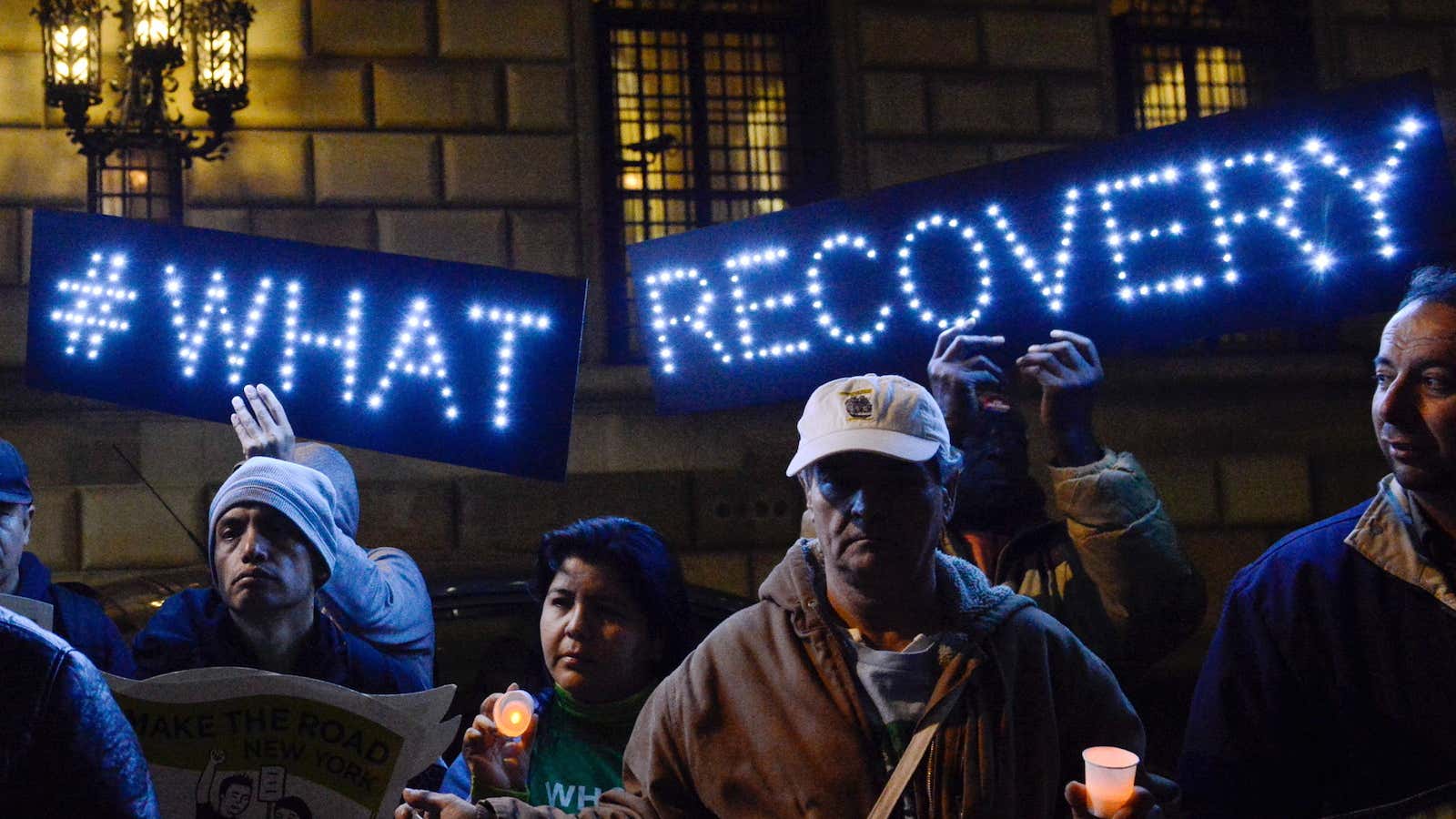For most of my career it has been good to be an economist. I felt wise, I felt heard. Sure, I got constant reminders from well-meaning people that no one behaves in the rational way that economists generally presume people do. But otherwise it seemed economists had influence and prestige.
No longer. On both the left and on the right, on both sides of the Atlantic, there’s been a resounding rejection of economic advice from experts in the field.
A majority of the UK electorate voted for Brexit despite dire warnings from economists. In America, the Democrats’ platform includes a $15 national minimum wage despite the fact that even left-leaning economists worry $15 is too high. And though economists maintain that the US benefited from deals like NAFTA, the Republicans, as well as some influential Democrats, think past trade deals were a mistake and are wary of future ones.
Meanwhile, economists may disagree on whether short-term government spending provides economic stimulus, but most worry about the cost of long-term structural deficits. Yet instead of reining in entitlement spending, there’s a mainstream push to make even bigger, unfunded promises.
It wasn’t always this way. Plenty of government administrations have made bad economic choices, but on balance, policy makers embraced the advice of economists—to promote trade, to run budget surpluses when the economy is booming, to adopt incentives to promote and subsidize work. But now many of these ideas, considered generally successful up until recently, have fallen out of favor with politicians as well as the public.
The most obvious reason for the recent populist resurgence is that things are terrible.
Economists promised free, unregulated markets would mean more growth—and then the Great Recession happened. Most economists support free trade but minimized the fact that, just like any policy shift, more trade would create winners and losers in the short run. In developed countries like the US, jobs in manufacturing are disappearing and wages are stagnant.
The non-stop news cycle and social media also may have played a role. Never before has the public had to endure seeing how the economic sausage gets made. Economists are notorious for holding different points of view. It is one of few fields in academia that boasts political diversity. But in the last few years the divisions seem to have become more politicized—and these divisions have spilled into social media, where they are frequently dissected by non-economists.
Spirited discussion is how consensus evolves, is thrown over, and evolves again. But this process may have caused less damage to the field when academic arguments were more cloistered. Now it creates an impression that economists are pure ideologues, and that people, and governments, can pick whatever economic argument is politically convenient for them.
The economics profession may deserve to lose some trust. Net-net, there may be more winners than losers from trade, but that doesn’t lessen the burden economic that households on the losing side have had to carry; we indeed may have minimized those costs. Economic theory predicts technology will bring more productivity and prosperity, but instead of making vague promises about the future, economists could be doing more to figure out how to make the transition less painful for people in jobs threatened by technology.
Meanwhile, the public keeps losing confidence.
This trend of rejecting expertise isn’t limited to economics. Despite overwhelming evidence and advice to the contrary, people are eschewing vaccines, boycotting GMO food, arguing with the theory of evolution, and rejecting the science of global warming. Economic populism may just be another example of more expert skepticism, which goes in waves and is nothing new. But what is new and worrying is how much populism seems to be infecting our politics now, as evidenced by the platforms of America’s two major parties. Next could be actual policies.
